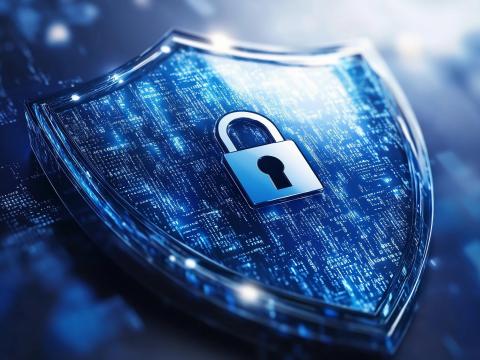President's Commentary: Shifting Partnership Paradigms for Data-Centric Warfare
Data makes up the nation’s national security and defense backbone. Whichever nation masters its data will likely make decisions faster, launch strikes more quickly, defend forces more effectively and dominate both the electronic and physical battlefields.
The Defense Department’s vision for CJADC2—or combined joint all-domain command and control—simply cannot stand without an abundance of accessible, timely, secured and trusted data. The department aims to apply CJADC2 across all warfighting domains to deter, and if necessary, defeat adversaries.
So, it is important to share what Army Lt. Gen. David “Todd” Isaacson, director for command, control, communications, and computers/cyber, and chief information officer, J-6, Joint Chiefs of Staff, said during a fireside chat at AFCEA International’s TechNet Cyber Conference in Baltimore two months ago. He noted a data-related paradigm shift that highlights the criticality of international partnerships for mission success today and tomorrow.
He indicated that data sharing today is more about our needing other countries to share data with us than our sharing with them.
“This door swings both ways. In data access and sharing, we, the United States, benefit from the accumulative data and information that our allies and partners possess. Because they have sensors. They have effectors. They have platforms,” he said. “And in order to be able to roll in on a target that might be sensed by an ally ... that door has to swing the other direction. And far too often, we believe it is what we are going to share. This paradigm has been shifted completely based upon the pace of experimentation and exercises where we are consuming allies’ and partners’ data much more than we are providing it.”
The U.S. national security and defense community has long recognized the value our allies and partners bring to the table. These essential relationships lie at the heart of every U.S. strategy document published in recent years, across agencies, departments and administrations. This shifting paradigm underlines that those relationships only grow more critical and rewarding as our dependence on data continues to grow.
Additionally, we know our partners and allies bring much more than data to the fight. Our friends here in the Americas, in Europe, the Asia Pacific and around the world continue to innovate in key technologies, such as cybersecurity, artificial intelligence, quantum computing, nanoelectronics, 5G and sensors. Furthermore, strategic partnerships like AUKUS, the trilateral security partnership between Australia, the United Kingdom and the United States, along with NATO modernization efforts and Indo-Pacific alliances and partnerships, foster deeper collaboration, including enhanced data sharing.
Other partnerships, such as those between the military, industry, and federal, state, county and local governments, also are vital to security, including critical infrastructure cybersecurity and homeland defense. We should never underestimate the ideas, innovation, expertise or solutions that our state and local experts can offer.
Also, technology companies with a worldwide presence sometimes provide essential information to the federal government. For example, Microsoft initially revealed the presence of Volt Typhoon, a hacker group affiliated with the Chinese Communist Party, in U.S. and allied critical infrastructures. Perhaps one day, we’ll see another paradigm shift in which industry provides more data to the government than the government does to industry.
We’ve heard at many AFCEA events that the Defense Department and the broader government cannot secure and defend the nation alone. We know data is central to virtually everything we do as a military, as a government and as a society. And we know that partnerships both abroad and at home will become increasingly important every day.
We also know there is no paradigm that our national security and defense community cannot shift, no mission we cannot accomplish as long as we do it together.





Comments